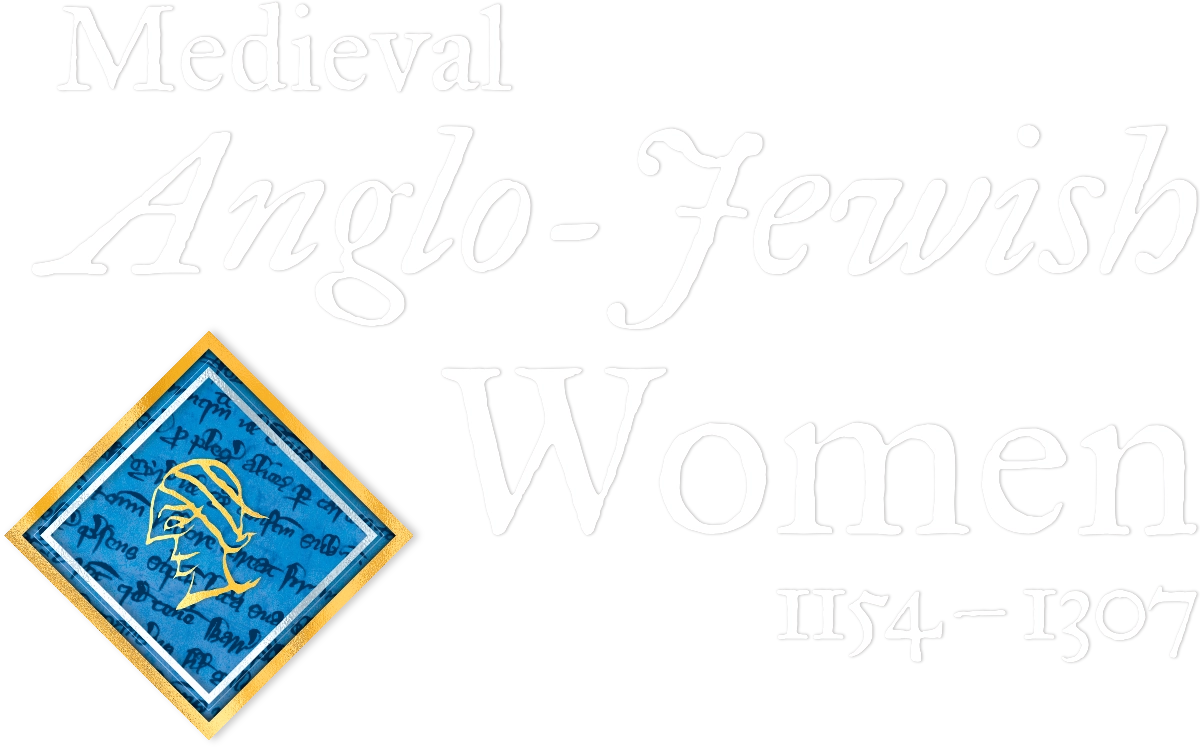Chera of London
Referred to in records as: “Chera”, “Chera of London”.
Brief biography

Chera was part one of the great medieval Anglo-Jewish families. She was married to
Cresse, the youngest son of Master Elias. This Master Elias, Chera’s father-in-law, was also known as Rabbi
Elijah Menachem (d. 1284), a notable scholar of Jewish law who maintained close
relationships with English clergy and royalty through much of the thirteenth century.
Master Elias was the eldest son of Master Moses of London (d. 1268). Chera and her
husband Cresse, until
his death in 1278, maintained one of this family’s long-held properties on Milk Street,
and their son Leo still held property in the area at the time of the Expulsion of
the
Jews from England in 1290. Chera appears in records only after Cresse’s death, and
she
does not seem to have had much interest in continuing her husband’s financial business.
Her father-in-law (affectionately called her father in the record) appeared before
the
Exchequer of the Jews and paid a fine for her to pass along a remaining bond of Cresse
to Bonamy of York. There is little evidence that she was otherwise engaged in
large-scale business transactions.
However, by 1280 she was feuding with a London
Christian woman over a loan. Christiana de la Ford and her husband Walter claimed
that
in 1277 Christiana had given Chera 100s. (£5) of her property as surety on a
loan of 60s. (£3), and that Chera still had possession of her belongings three
years later: specifically, a mazer cup with large feet, a silver necklace, a cape
with a
jeweled collar and no hood, a silver spoon, 10 gold rings, 6 silver brooches, and
a
carpet made of leather straps. She had repaid Chera 59 of the 60s., but, when
she came to Chera’s house with the final shilling, Chera broke their previous agreement
and refused to return her property without a further 12s. of interest — thereby
violating the interest-banning terms of the 1275 Statute of the Jewry. Chera maintained
that she had never received any goods from Christiana, nor any payments, and she was
ready to prove this
by her own hand.Walter and Christiana were equally eager to verify their claims — to which Chera responded,
they have the right to do so through a charter of the previous king of England.
As so often happens, there is no record of the resolution, but the case is a fascinating
look into the belongings, households,
and interactions of two wealthy London women.
Further reading
- Brand, Paul, Menahem, Elijah [known as Master Elias], Oxford Dictionary of National Biography, 2004. https://doi.org/10.1093/ref:odnb/37756.
- Hillaby, J. and C. Hillaby, The Palgrave Dictionary of Medieval Anglo-Jewish History. London: Palgrave. 2015, s.v. London, Master Elias of (Elijah Menahem) and London, Master Moses of, pp. 250–253 and 255.
- Elijah Menahem ben Moses, The Writings of Rabbi Elijah of London, edited from MSS with an introduction and notes by Rabbi M.Y.L. Sacks and biography of the author by Prof. Cecil Roth. Jerusalem: Mossad Rav Kook. 1956.
Dates mentioned in records
1278–1285
Locations
London, Yorkshire

